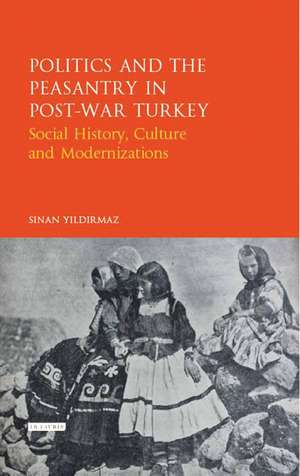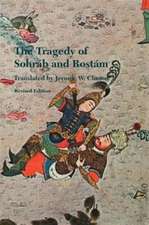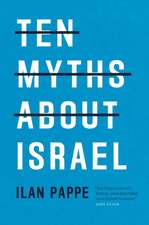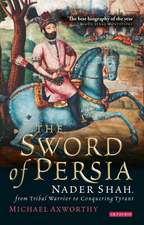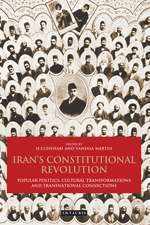Politics and the Peasantry in Post-War Turkey: Social History, Culture and Modernization
Autor Sinan Yildirmazen Limba Engleză Hardback – 3 noi 2016
Preț: 773.39 lei
Preț vechi: 1112.67 lei
-30% Nou
Puncte Express: 1160
Preț estimativ în valută:
147.99€ • 154.90$ • 123.17£
147.99€ • 154.90$ • 123.17£
Carte disponibilă
Livrare economică 10-24 martie
Preluare comenzi: 021 569.72.76
Specificații
ISBN-13: 9781780761138
ISBN-10: 1780761139
Pagini: 304
Ilustrații: 4 b/w integrated
Dimensiuni: 138 x 216 x 29 mm
Greutate: 0.5 kg
Editura: Bloomsbury Publishing
Colecția I.B.Tauris
Locul publicării:London, United Kingdom
ISBN-10: 1780761139
Pagini: 304
Ilustrații: 4 b/w integrated
Dimensiuni: 138 x 216 x 29 mm
Greutate: 0.5 kg
Editura: Bloomsbury Publishing
Colecția I.B.Tauris
Locul publicării:London, United Kingdom
Notă biografică
Sinan Yildirmaz is Assistant Professor of History at Istanbul University and an expert on the cultural history of Modern Turkey.
Cuprins
ChapterI. INTRODUCTIONII. PEASANTS IN THEORY AND THE DEVELOPMENT OF RURALSOCIOLOGY IN TURKEYModernization Theory and the PeasantryThe Development of "Rural Sociology" in TurkeyIII. PEASANTS MOVING TOWARDS CITIES:THE TRANSFORMATION OF THE RURAL STRUCTURE, RURAL MIGRATION AND THE GECEKONDUThe Change in Economic Policies in the Post-War Period Capitalism, Modernization and UrbanizationThe Land Reform Law, the Marshall Plan, the Smallholder Peasantry and MigrationThe Reasons for the Rural Migration, or Is It Possible to Create a Stereotype in the Analysis of the Rural Migration? The Peasants in the Cities and the Invention of the "Gecekondu" IV. PEASANTRY AS AN ACTIVE COMPONENT OF POLITICSThe Arslanköy Case and the Development of the Rule of LawThe Peasants and Politics during the DP GovernmentThe Village Coffeehouse as a Political SpaceThe Peasants and Anti-CommunismV. THE MAKING OF THE "VILLAGE LITERATURE" Defining the Village LiteratureHistory in the Village LiteratureThe Making of the Village Literature CanonFrom the "Reality" of the Literature to the "Reality" of the CountryVI. CONCLUSION
